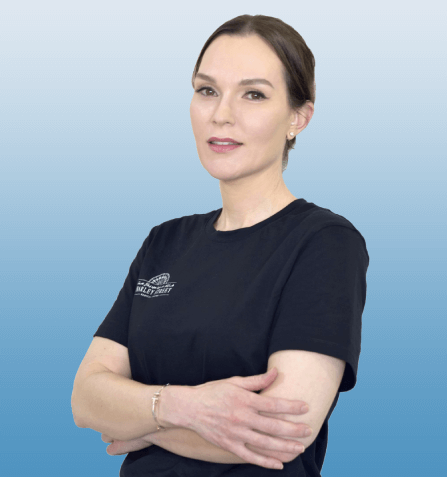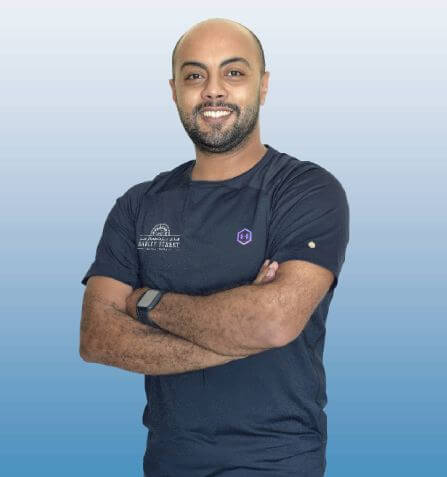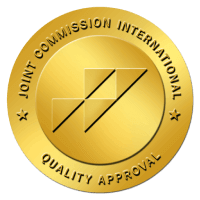FOOT AND ANKLE
CONDITIONS
- ACHILLES TENDON RUPTURE
- ANKLE SPRAINS
- ANKLE FRACTURE
- ANKLE INSTABILITY
- ATHLETE’S FOOT
- FOOT & ANKLE OSTEOARTHRITIS
- HEEL FRACTURES
- LISFRANC (MIDFOOT) FRACTURE
- PLANTAR FASCIOPATHY
- STRESS FRACTURE OF THE FOOT
- TALUS FRACTURES
- TOE AND FOREFOOT FRACTURE
Achilles tendon is a strong fibrous cord present behind the ankle that connects the calf muscles to heel bone. It is used when you walk, run and jump. When the Achilles tendon becomes thin, weak, or if it is not used, it may be susceptible to injury or damage. Achilles tendon rupture occurs most often in middle-aged athlete participating in sports that involve running, pivoting, and jumping. Recreational sports that may cause Achilles rupture include tennis, racquetball, basketball, and badminton.
If Achilles tendon is ruptured you will experience severe pain in the back of your leg, swelling, stiffness, and difficulty to stand on tiptoe and push the leg when walking. A popping or snapping sound is heard when the injury occurs. You may also feel a gap or depression in the tendon, just above heel bone.
Your doctor diagnoses the rupture based on symptoms, history of the injury and physical examination. Your doctor will gently squeeze the calf muscles, if the Achilles tendon is intact, there will be flexion movement of the foot, if it is ruptured, there will be no movement observed.
Achilles tendon rupture is treated using non-surgical method or surgical method. Non-surgical treatment involves wearing a cast or special brace which is changed after some period of time to bring the tendon back to its normal length. Along with cast or brace, physical therapy may be recommended to improve the strength and flexibility of leg muscles and Achilles tendon. Surgical procedure involves opening the skin and suturing the torn tendon together. Surgery helps to decrease the recurrence of the Achilles tendon in comparison to the non-surgical treatment.
To help prevent an Achilles tendon injury, it is a good practice to perform stretching and warm-up exercises before any participating in any activities. Gradually increase the intensity and length of time of activity. Muscle conditioning may help to strengthen the muscles in the body.
Ankle Sprains are common injuries that occur from over stretching or tearing of the ligaments that support the ankle. The ankle is composed of bones forming a joint and ligaments are the elastic structures which are responsible for holding these bones in their proper place. Ligaments and other soft tissues function to prevent abnormal movement such as twisting, turning, and rolling of the foot beyond the normal range.
Causes
Ankle sprains occur due to sudden inward or inverted movement of the foot during sports activities, or while walking and running on uneven surfaces. An ankle sprain can occur from falling, or sudden force on the ankle which twists the joint beyond its normal range, resulting in damage to the ligament. Ankle sprains can occur at any age and although commonly seen as a sports injury, ankle sprains can occur to non-athletes as well.
Symptoms
Ankle sprains result in pain, swelling, bruising, and stiffness of the ankle region. Mobility, range of motion and weight bearing are adversely affected. The severity of the ankle sprain depends on the condition of the torn ligament.
Grades of ankle sprain
Based on the severity of the ligament’s condition, ankle sprains are categorized as grade 1,2, or 3.
Grade 1: a mild sprain with some damage to the ligament fibers.
Grade 2: a moderate sprain with partial tearing of the ligament.
Grade 3: a severe sprain with complete tearing of the ligament.
Diagnosis
The diagnosis of ankle sprain starts with the physical examination, which is painful as the ankle is bent in various directions to assess which ligament is injured. Then X-rays are taken to confirm whether any fracture is present, as the symptoms of a sprain are similar. The doctor grades the ankle sprain by looking at the amount of swelling and bruising of the ankle. In complex cases, an MRI scan is ordered for analyzing the injured ligament.
Treatment
Treatment and healing time of an ankle sprain will depend on the grade of the sprain. All sprains will be treated with the R.I.C.E. method: Rest, Ice, Compression, and Elevation.
Your physician may also order the following treatment measures if the sprain is a grade 2 or 3.
Immobilization: A splint, short leg cast, or boot may be used to immobilize the ankle and allow healing to take place with a grade 2 or 3 sprain.
Medications: Medications such as aspirin and NSAID’s, non-steroidal anti-inflammatory drugs, can be prescribed for your comfort and to minimize swelling.
Physical Therapy: Strengthening and range of motion exercises may be prescribed by a therapist to regain normal function of the ankle and prevent chronic ankle problems. Your therapist may utilize ultrasound and electrical stimulation to decrease pain and swelling and instruct you on taping the ankle for support while it heals.
Surgery for ankle sprains is rarely needed but may be necessary if the sprain is a grade 3 with complete tearing of the ligament and the patient does not improve with conservative treatment measures and months of adequate healing time.
Your surgeon will perform Ankle Arthroscopy surgery to evaluate and repair the torn ligament.
Arthroscopy is a surgical procedure in which an arthroscope, a small, soft, flexible tube with a light and video camera at the end, is inserted into a joint to evaluate and treat a variety of conditions.
The benefits of arthroscopy compared to the alternative, open ankle surgery, include:
- Smaller incisions
- Minimal soft tissue trauma
- Less pain
- Faster healing time
- Lower infection rate
- Less scarring
- Earlier mobilization
- Usually performed as outpatient day surgery
Your surgeon will look for any loose fragments of bone or ligament inside the joint with the help of an arthroscope through a small incision.
The torn ligament is repaired by stitching it back together with sutures or by using the surrounding ligaments or tendons to repair the damaged ligament.
Conclusion
Ankle sprain is a common and painful condition in which ligaments supporting the ankle joint are torn or damaged. Sprains are most often treated conservatively by resting the injured joint, applying ice to the injury, using a compression bandage, and elevation of the foot. In severe cases, surgery may be necessary.
The ankle joint is composed of three bones: the tibia, fibula, and talus which are articulated together. The ends of the fibula and tibia (lower leg bones) form the inner and outer malleolus, which are the bony protrusions of the ankle joint that you can feel and see on either side of the ankle. The joint is protected by a fibrous membrane called a joint capsule, and filled with synovial fluid to enable smooth movement.
Ankle injuries are very common in athletes and in people performing physical work, often resulting in severe pain and impaired mobility. Pain after ankle injuries can either be from a torn ligament and is called ankle sprain or from a broken bone which is called ankle fracture. Ankle fracture is a painful condition where there is a break in one or more bones forming the ankle joint. The ankle joint is stabilized by different ligaments and other soft tissues, which may also be injured during an ankle fracture.
Causes
Ankle fractures occur from excessive rolling and twisting of the ankle, usually occurring from an accident or activities such as jumping or falling causing sudden stress to the joint.
Symptoms
With an ankle fracture, there is immediate swelling and pain around the ankle as well as impaired mobility. In some cases blood may accumulate around the joint, a condition called hemarthrosis. In cases of severe fracture, deformity around the ankle joint is clearly visible where bone may protrude through the skin.
Types of fractures
Ankle fractures are classified according to the location and type of ankle bone involved. The different types of ankle fractures are:
- Lateral Malleolus fracture in which the lateral malleolus, the outer part of the ankle is fractured.
- Medial Malleolus fracture in which the medial malleolus, the inner part of the ankle, is fractured.
- Posterior Malleolus fracture in which the posterior malleolus, the bony hump of the tibia, is fractured.
- Bimalleolar fractures in which both lateral and medial malleolus bones are fractured
- Trimalleolar fractures in which all three lateral, medial, and posterior bones are fractured.
- Syndesmotic injury, also called a high ankle sprain, is usually not a fracture, but can be treated as a fracture.
Diagnosis
The diagnosis of the ankle injury starts with a physical examination, followed by X-rays and CT scan of the injured area for a detailed view. Usually it is very difficult to differentiate a broken ankle from other conditions such as a sprain, dislocation, or tendon injury without having an X-ray of the injured ankle. In some cases, pressure is applied on the ankle and then special X-rays are taken. This procedure is called a stress test. This test is employed to check the stability of the fracture to decide if surgery is necessary or not. In complex cases, where detail evaluation of the ligaments is required an MRI scan is recommended.
Treatments
Immediately following an ankle injury and prior to seeing a doctor, you should apply ice packs and keep the foot elevated to minimize pain and swelling.
The treatment of ankle fracture depends upon the type and the stability of the fractured bone. Treatment starts with non-surgical methods, and in cases where the fracture is unstable and cannot be realigned, surgical methods are employed.
In non-surgical treatment, the ankle bone is realigned and special splints or a plaster cast is placed around the joint, for at least 2-3 weeks.
With surgical treatment, the fractured bone is accessed by making an incision over the ankle area and then specially designed plates are screwed onto the bone, to realign and stabilize the fractured parts. The incision is then sutured closed and the operated ankle is immobilized with a splint or cast.
Post-Operative Care
After ankle surgery, you will be instructed to avoid putting weight on the ankle by using crutches while walking for at least six weeks.
Physical therapy of the ankle joint will be recommended by the doctor. After 2-3 months of therapy, the patient may be able to perform their normal daily activities.
Risks and Complications
Risks and complications that can occur with ankle fractures include improper casting or improper alignment of the bones which can cause deformities and eventually arthritis. In some cases, pressure exerted on the nerves can cause nerve damage, resulting in severe pain.
Rarely, surgery may result in incomplete healing of the fracture, which requires another surgery to repair.
Ankle instability is a chronic condition characterized by a recurrent slipping of the outer side of the ankle. It usually results from repeated ankle sprains. It is generally noticed during movement of the ankle joint but can also occur during standing as well.
Causes
Repetitive injury of the ankle ligaments on the same side is the most common cause of ankle instability. Inadequate healing of the sprained ligament or incomplete rehabilitation of the affected ligament can result in instability of the ankle. Recurrent injury of the ligaments further weakens them and aggravates the instability which predisposes to the development of additional ankle problems.
Symptoms
Pain is the most common symptom and is associated with swelling and tenderness of the ankle. There may be a persistent discomfort and instability in the affected ankle joint. The ankle is unstable and may turn repeatedly while walking on uneven surfaces or during a sporting activity.
Diagnosis
A complete medical history, including a history of any previous ankle injuries, and a physical examination is essential for an accurate diagnosis of the condition. An X-ray may be ordered to confirm the diagnosis. Other imaging tests may also be used to evaluate the injury.
Treatment
The management of ankle instability depends on the findings of physical examination and the activity level of the patient.
Conservative treatment
Conservative treatment includes physical therapy for improving the strength, balance and range of motion of the joint, bracing to support the affected ankle and prevent further sprain, and non-steroidal anti- inflammatory (NASAIDs) to reduce the pain and inflammation.
Surgical treatment
Surgery is recommended in patients with a high degree of instability and in those who have failed to respond to non-surgical treatments. Commonly used surgical procedures involve repair or reconstruction of the damaged ligament.
Athlete’s foot also known as tinea pedis, is a fungal infection on the skin of the foot. It is characterized by itchy, moist, white, scaly lesions between the toes that can spread to the sole of the foot. Athlete’s foot is contagious and spreads through contact with infected skin scales or fungi in moist areas such as swimming pools and bathrooms, or from sharing shoes of an infected person or having contact with pets carrying the fungi. It is a chronic infection that can recur after treatment.
A common symptom of athlete’s foot is moist, itchy, scaly lesions between the toes; another form presents as dry, peeling skin between the toes. The area often becomes red and itchy. You may also feel a burning sensation between your toes. If the infection spreads to your toenails, they can become thick and discolored.
Treatment
Treatment of athlete’s foot includes antifungal skin creams or oral medicines containing miconazole, clotrimazole, or tolnafate. The skin creams should be applied to the affected area in small amounts at least once a day. You should continue applying the cream daily for 1 – 2 weeks, even after the infection clears from your feet to prevent the infection from recurring. A medicated powder may also be given to help keep the feet dry. The fungal infection can last three to four weeks.
Preventive Tips
- Wash your feet every day with soap and water.
- Keep your feet clean and dry, preferably between your toes.
- Keep your nails short and clean because nails can house the fungi and spread the infection.
- Wear clean socks made of cotton, and change them often in order to keep your feet dry.
- Avoid walking barefoot in public areas. Wear proper shoes that support good air circulation to your feet.
Arthritis is inflammation resulting from the degeneration of cartilage in the joint causing pain, swelling, and stiffness in the joints resulting in restricted movements. Arthritis of the foot and ankle joint can occur due to fracture, dislocation, inflammatory disease, or congenital deformity. The foot joints most commonly affected by arthritis are:
- The joint between the shin bone (tibia) and ankle bone (talus)
- The three joints of the foot that include the heel bone, the inner mid-foot bone, and the outer mid-foot bone
- The joint of the great toe and foot bone
There are three types of arthritis affecting the foot and ankle and may include:
Osteoarthritis: Also called degenerative joint disease, this is the most common type of Arthritis, which occurs most often in older people. This disease affects cartilage, the tissue that cushions and protects the ends of bones in a joint. With osteoarthritis, the cartilage starts to wear away over time. In extreme cases, the cartilage can completely wear away, leaving nothing to protect the bones in a joint, causing bone-on-bone contact. Bones may also bulge, or stick out at the end of a joint, called a bone spur.
Rheumatoid Arthritis: This is an auto-immune disease in which the body’s immune system (the body’s way of fighting infection) attacks healthy joints, tissues, and organs. It can cause pain, stiffness, swelling, and loss of function in joints. Rheumatoid Arthritis affects mostly joints of the hands and feet and tends to be symmetrical. This means the disease affects the same joints on both sides of the body (both feet) at the same time and with the same symptoms.
Post-traumatic arthritis: Arthritis developing following an injury to ankle or foot is called as post-traumatic arthritis. The condition may develop years after the trauma such as a fracture, severe sprain, or ligament tears.
Rheumatoid arthritis is often caused when the genes responsible for the disease is triggered by infection or any environmental factors. With this trigger body produce antibodies, the defense mechanism of body, against the joint and may cause rheumatoid arthritis. Fractures at joint surfaces and joint dislocations may predispose an individual to develop post-traumatic arthritis. It is considered that your body secretes certain hormones following injury which may cause death of the cartilage cells. Uric acid crystal build-up is the cause of gout and long-term crystal build-up in the joints may cause deformity.
Symptoms of foot and ankle arthritis include pain or tenderness, swelling, and stiffness in the joint and limited range of motion.
The diagnosis of foot and ankle arthritis is made with a medical history, physical examination and X-rays of the affected joint. A bone scan, computed tomography (CT) scans and magnetic resonance imaging (MRI) scans are also performed to diagnose arthritis.
Nonsurgical treatment options for foot and ankle arthritis include medications (anti-inflammatories), injections (steroids), physical therapy, ankle-foot orthosis (AFO), weight loss, orthotics such as pads or arch supports, and canes or braces to support the joints. Surgery may be required to treat foot and ankle arthritis, if your symptoms do not get better with conservative treatments. Surgery performed for arthritis of the foot and ankle includes:
Arthroscopic surgery: Arthroscopy is a surgical procedure during which the internal structure of a joint is examined for diagnosis and treatment of problems inside the joint. In arthroscopic examination, a small incision is made in the patient’s skin through which pencil-sized instruments that have a small lens and lighting system (arthroscope) are passed. Arthroscope magnifies and illuminates the structures of the joint with the light that is transmitted through fiber optics. It is attached to a television camera and the interior of the joint is seen on the television monitor. Your surgeon can then use probes, forceps, knives, and shavers, to clean the joint area of foreign tissue, inflamed tissue, or bony outgrowths (spurs).
Arthroplasty or Joint Replacement: In this procedure, your surgeon removes the damaged ankle joint and replaces it with an artificial implant. It is usually performed when the joint is severely damaged by osteoarthritis, rheumatoid arthritis or post-traumatic arthritis. The goal of ankle replacement is to relieve pain and restore the normal function of the ankle joint.
The calcaneus or heel bone is a large bone found at the rear of the foot. A fracture is a break in a bone from trauma or various disease conditions. The types of fracture to the calcaneus depend on the severity and include stable fractures, displaced fractures, open fractures, closed fractures and comminuted fractures.
A fracture of the calcaneus is most commonly due to a traumatic event such as falling from a height, twisting injuries, motor vehicle accidents and ankle sprains. The commonly seen signs and symptoms of calcaneal fractures include pain, swelling, bruising and inability to walk or bear weight on the foot.
The evaluation of a calcaneal fracture is done by imaging studies such as X-rays and CT scans. Based on the severity of the fracture, your doctor recommends the plan of treatment.
Fracture of the calcaneus is considered serious and can cause problems if not treated correctly. Calcaneal fractures are treated based on the type of fracture and extent of soft tissue damage. Nonsurgical treatment is advised for non-displaced fractures and may include:
- Rest, ice, compression, and elevation (R.I.C.E.): This is the most commonly suggested treatment option. Staying off (resting) the injured foot can heal the fracture to a great extent. Covering the affected area with ice packs over a towel reduces swelling and pain. Compression stockings or elastic bandages, and positioning your feet above the heart level reduces swelling.
- Immobilization: Casting the injured foot prevents the fractured bone from moving. Walking with the help of crutches is advisable to avoid bearing body weight until healing has occurred.
Surgical treatment is recommended for severe traumatic fractures and may include:
- Open reduction and internal fixation: This surgery involves putting the bone fragments back together in normal alignment and holding them in position with metal plates and screws.
- Percutaneous screw fixation: This is the preferred treatment in cases where the fractured bone pieces are large. The bone can either be pushed or pulled to set into place without making a large incision. Metal screws are then inserted and fixed through small incisions to hold these bone pieces together.
Rehabilitation
Irrespective of the treatment procedure, physical therapy and regular simple exercises are recommended to help restore function.
The lisfranc joint or tarsometatarsal joint refers to the region in the middle of the foot. It is a junction between the tarsal bones (seven bones in the foot arch) and metatarsal bones (five long bones in the foot). Lisfranc fracturescan occur due to a fall from a height or traumatic motor accidents.
A midfoot fracture is characterized by pain and inability to bear weight. The appearance of bruises and swelling on the bottom of the midfoot are commonly observed symptoms. Your doctor will first examine the physical condition of the foot by inspection and palpation, then order X-rays, CT or MRI scans to provide more information about your condition.
The early stages of injury can be treated with rest, application of ice, elevation of your foot, NSAIDs and immobilization. The bones may be surgically aligned in correct position and held with screws and pins, or a tarsometatarsal joint fusion may be recommended if all the non-surgical procedures fail to show efficacy in treating the injury.
The plantar fascia is a long, thin ligament present along the bottom of the foot that creates the arch of the foot. It extends from the heel bone, and then splits and fans out to attach itself to the toes.
Plantar fasciopathy is a condition where the plantar fascia becomes inflamed from overstretching or overuse, causing pain in the heel and bottom of the foot. It can occur in one or both feet due to excessive standing and is one of the most common orthopaedic complaints, especially in active men between 40 and 70 years of age.
Causes
Plantar fasciopathy occurs when you strain or irritate the plantar fascia ligament. Repeated strain can result in tiny tears in the ligament, leading to pain and swelling, which can make walking difficult.
Strains can occur due to :
- High or low foot arch
- Obesity or sudden weight gain
- Tight Achilles tendon which connects the calf muscles to the heel
- Starting a new activity or increasing the intensity of an activity
- Wearing improper shoes with soles that are too soft, do not fit well or offer poor arch support
Symptoms
The major complaint of plantar fasciopathy is pain and stiffness in the heel and foot. The pain associated with this condition becomes more intense:
- In the morning when you step out of bed
- Walking after sitting or standing for some time
- Climbing stairs
- After exercise
Diagnosis
Your doctor diagnoses plantar fasciopathy after reviewing your medical history and conducting a physical examination of the foot to check for tenderness, stiffness or redness of the sole. Your doctor may watch how you stand and walk, and evaluate related conditions such as high arches.
X-rays of the foot can be taken if your doctor suspects a stress fracture, a hairline fracture in the bone, or other related conditions such as a heel spur, which is extra calcium deposit on the heel bone.
Treatment
Treatment involves conservative measures to resolve the condition. Conservative treatment measures include:
- Rest: Rest is the first step that is considered for reducing pain and preventing further damage to the ligament.
- Ice: Rolling your foot over ice can be very effective in reducing swelling, and is recommended for 20 minutes, 3-4 times a day
- Medications: NSAIDs (non-steroidal anti-inflammatory drugs) may be prescribed for relief of pain and inflammation
- Exercise: calf stretches and plantar fascia stretches are effective in relieving pain
- A steroid injection may be administered into the plantar fascia for reducing pain and inflammation
- Supportive shoes and orthotics may also be recommended to reduce the pain while walking or standing
- Night splints can be suggested by your doctor to help stretch the plantar fascia while sleeping
- Physical therapy may be recommended for instruction on stretching exercises, massage and ice treatments
- PT may use extracorporeal shockwave therapy (ESWT), which uses high-energy shockwave impulses to stimulate healing of the damaged plantar fascia tissues
Surgery
Surgical treatment is considered only if conservative therapy does not provide effective relief after 12 months. There are two surgeries your surgeon may perform and will depend on your particular situation.
- Gastrocnemius recession: Tight calf muscles or gastrocnemius muscles can strain the plantar fascia. To release this stress, your surgeon will surgically lengthen the calf muscle, and increase the motion of the ankle. The surgery can be performed by open incision or endoscopically through a small incision by using an endoscope, which is a long instrument with a small camera attached.
- Plantar fascia release: If you have normal range of ankle motion, but continue to have heel pain, a partial release procedure is recommended. Your surgeon will partially cut the plantar fascia ligament to relieve the tension. The surgery can be performed endoscopically but open incision is easier to perform and is associated with lower risk of nerve damage.
Risks and Complications
Complications are rare following surgery to treat plantar fasciopathy, but as with any surgical procedure, they can occur. Some complications include:
- Infection
- Nerve Damage
- Unresolved Pain
Summary
Plantar fasciopathy is inflammation of the plantar fascia along the base of the foot resulting in pain and impaired movement of the foot. Pain can be relieved effectively by different non-surgical methods and usually resolves within 10 months. For severe cases that are unresolved, surgery may be considered.
A stress fracture is a small crack in the bone which occurs from overuse injury. It commonly develops in the weight-bearing bones of the lower leg and foot. When the muscles of the foot are overworked or stressed, they are unable to absorb the stress and transfer it onto the bone, which cracks under the pressure.
Stress fractures result from a rapid increase in the intensity of exercise or sports activities. They can also be caused by a change in the surface of a sports activity (such as changing from soft clay court to hard court in tennis), increased physical activity without adequate rest and wearing worn-out or uncomfortable footwear. Athletes participating in certain sports such as basketball, tennis and gymnastics are at a greater risk of developing stress fractures as they experience repeated stress on the foot each time they land on a hard surface.
The most common symptom of a stress fracture is pain, which usually worsens with activity and decreases with rest. Swelling, bruising, and tenderness may also occur.
Your doctor diagnosis the condition after evaluating your symptoms and risk factors, and performs a thorough examination of the foot and ankle. Diagnostic tests including X-ray, CT, MRI or bone scans may be required to confirm the fracture.
Stress fractures can be treated with non-surgical approaches such as rest, limiting physical activities, wearing protective shoe inserts, and immobilization with casts or braces in order to allow the injury to heal. Surgery may be required if the fracture does not heal completely with these methods. Your doctor makes an incision over the fracture area and uses internal fixators such as screws, pins or plates to hold the broken bones together until complete healing occurs.
Some of the following measures may help to prevent stress fractures:
- Start any new sport activity slowly and progress gradually.
- Cross-training or altering exercises can prevent overstressing one part of the body.
- Maintain a healthy diet and include calcium and vitamin D-rich foods in your diet.
- Wear well-fitting and comfortable footwear specifically designed for the particular sports activity and avoid using old or worn out shoes.
The talus is a small bone at the ankle joint that connects the heel bone and the two bones of the lower leg, enabling the up and down movement of the foot. Fractures in the talus bone may occur due to a fall from great heights, motor vehicle accidents or twisting of the ankle. The symptoms include severe ankle pain, inability to walk, swelling and tenderness.
When you present to the clinic with these symptoms, your doctor will perform a thorough physical examination and order an X-ray or CT-scan to diagnose the location and severity of the fracture. Talus fractures are treated by either non-surgical or surgical methods.
Non-surgical treatment: If the bone has not moved out of alignment, your doctor will place your ankle in a cast for 6 to 8 weeks. You will be advised to perform exercises to help strengthen your foot and ankle and restore range of motion once the cast is removed.
Surgical treatment: Your surgeon realigns the fractured bone and stabilizes it with metal plates and/or screws. Small bone fragments may be removed and replaced with bone graft. After surgery, you may have to wear a cast for 6 to 8 weeks until complete healing. Physical therapy exercises will be initiated to restore movement.
The forefoot is the front of the foot that includes the toes. Fractures occurring in this part of the foot are painful but very often not disabling. There are 2 types of fractures namely, traumatic fracture and stress fracture. Traumatic fractures occur when there is a direct impact of your foot on a hard surface. Stress fractures are tiny hair line cracks in the bone, most commonly caused due to repeated stress. The symptoms of toe and forefoot fractures include pain, bruising, swelling and inability to walk.
To detect toe and forefoot fractures, your doctor conducts a physical examination of the foot, and may order X-ray’s to identify the location and severity of the fracture. Toe and forefoot fractures can be treated by the following ways:
- Rest: Adequate amount of rest can sometimes help heal a traumatic fracture.
- Splinting: Splints may be applied to keep the toe in a fixed position.
- Rigid shoe: A stiff-soled shoe may be recommended to protect the toe and position it correctly.
- Buddy taping: The fractured toe is taped to the adjacent toe with a gauze pad between the toes.
- Surgery: Your doctor realigns the fractured bones using pins or screws to hold the bones together in place until they heal completely.
PROCEDURES
- ACHILLES TENDON REPAIR
- ANKLE ARTHROSCOPY
Tendons are the soft tissues connecting muscles to the bones. The achilles tendon is the longest tendon in the body and is present behind the ankle, joining the calf muscles with the heel bone. Contraction of the calf muscles tightens the achilles tendon and pulls the heel, enabling foot and toe movements necessary for walking, running and jumping.
The achilles tendon is often injured during sports resulting in an inflammatory condition called tendonitis which is characterized by swelling and pain. In some cases, severe injury results in a tear or rupture of the Achilles tendon requiring immediate medical attention.
Causes
The tear or rupture of the Achilles tendon is commonly seen in middle aged male who involve in sports activities occasionally or in weekend athletes. The tendon ruptures because of weakened tendons due to advanced age or from sudden bursts of activity during sports such as tennis, badminton, and basketball.
People with a history of tendonitis, those suffering from certain diseases such as arthritis and diabetes, or taking certain antibiotics are more susceptible for ruptures.
Symptoms
The classic symptom of an Achilles tendon rupture is the inability to rise up on your toes. Patients often describe a “popping” or “snapping” sound with severe pain, swelling and stiffness in the ankle region followed by bruising of the area. If the tendon is partially torn and not ruptured, pain and swelling may be mild.
Diagnosis
The diagnosis of a torn or ruptured Achilles tendon starts with a physical examination of the affected area, followed by a Thompson test in which the calf muscle is pressed with the patient lying on their stomach to check whether the tendon is still connected to the heel or not.
In certain cases, an ultrasound or MRI scan may be needed for a clear diagnosis.
Treatment
The main objective of treatment is to restore the normal physiology of the Achilles tendon so the patient can perform activities as before the injury.
Immediately following a torn or ruptured Achilles tendon you should employ the RICE method as follows:
- Rest of the injured part
- Ice packs application at the site of injury to prevent swelling
- Compress the injured area to prevent swelling
- Elevate the injured part to reduce swelling
Treatment of a torn or ruptured Achilles tendon includes non-surgical or surgical methods. Non-surgical methods involve casting the injured area for six weeks for the ruptured tendon to reattach itself and heal. After removal of the cast, physical therapy is recommended to prevent stiffness and restore lost muscle tone.
Surgery may be recommended especially for competitive athletes, those who perform physical work, or in instances where the tendon re-ruptures. Your surgeon will stitch the torn tendon back together with strong sutures and tie the sutures together. Your surgeon may reinforce the Achilles tendon with other tendons depending on the extent of the tear. If the tendon has avulsed or pulled off the heel bone, your surgeon will reattach the tendon to the heel bone.
Risks and Complications
Every medical treatment including surgeries is associated with certain risks and complications. Some of them include infection, bleeding, nerve injury, and blood clots.
Arthroscopy is a minimally invasive surgical procedure during which the internal structure of a joint is examined for diagnosis and treatment. Ankle Arthroscopy includes the diagnosis and treatment of ankle conditions. In an arthroscopic examination, a small incision is made in the patient’s skin through which a pencil-sized instrument with a small lens and lighting system (arthroscope) is passed. The arthroscope magnifies and illuminates the structures of the joint. It is attached to a monitor so that the interior of the joint can be clearly visible by your surgeon.
Arthroscopic examination of the ankle joint is helpful in diagnosis and treatment of various ankle disorders such as ankle arthritis, unstable ankle, footballer’s ankle, fracture, lateral ligament reconstruction, osteochondral defects of the talus, diseases of the synovium and undiagnosed ankle pain.
Procedure
During arthroscopic ankle surgery, either a general or local anesthesia will be given depending on the condition. A small incision the size of a buttonhole is made through which the arthroscope is inserted. Other accessory incisions will be made through which specially designed instruments are inserted. With the help of the arthroscope and surgical instruments, your surgeon repairs or corrects the problem. After the procedure is completed the arthroscope and other instruments are removed and incisions closed. You are instructed on how to care for the incisions, activities to be avoided and exercises to be performed for faster recovery.
Some of the possible complications after arthroscopy include infection, thrombophlebitis (clotting of blood in vein), excessive swelling, bleeding, blood vessel or nerve damage and instrument breakage.
Recovery
It may take several weeks for the puncture wounds to heal and the joint to recover completely. A rehabilitation program is advised for a speedy recovery of normal joint function. You can resume normal activities after consulting with your surgeon.








